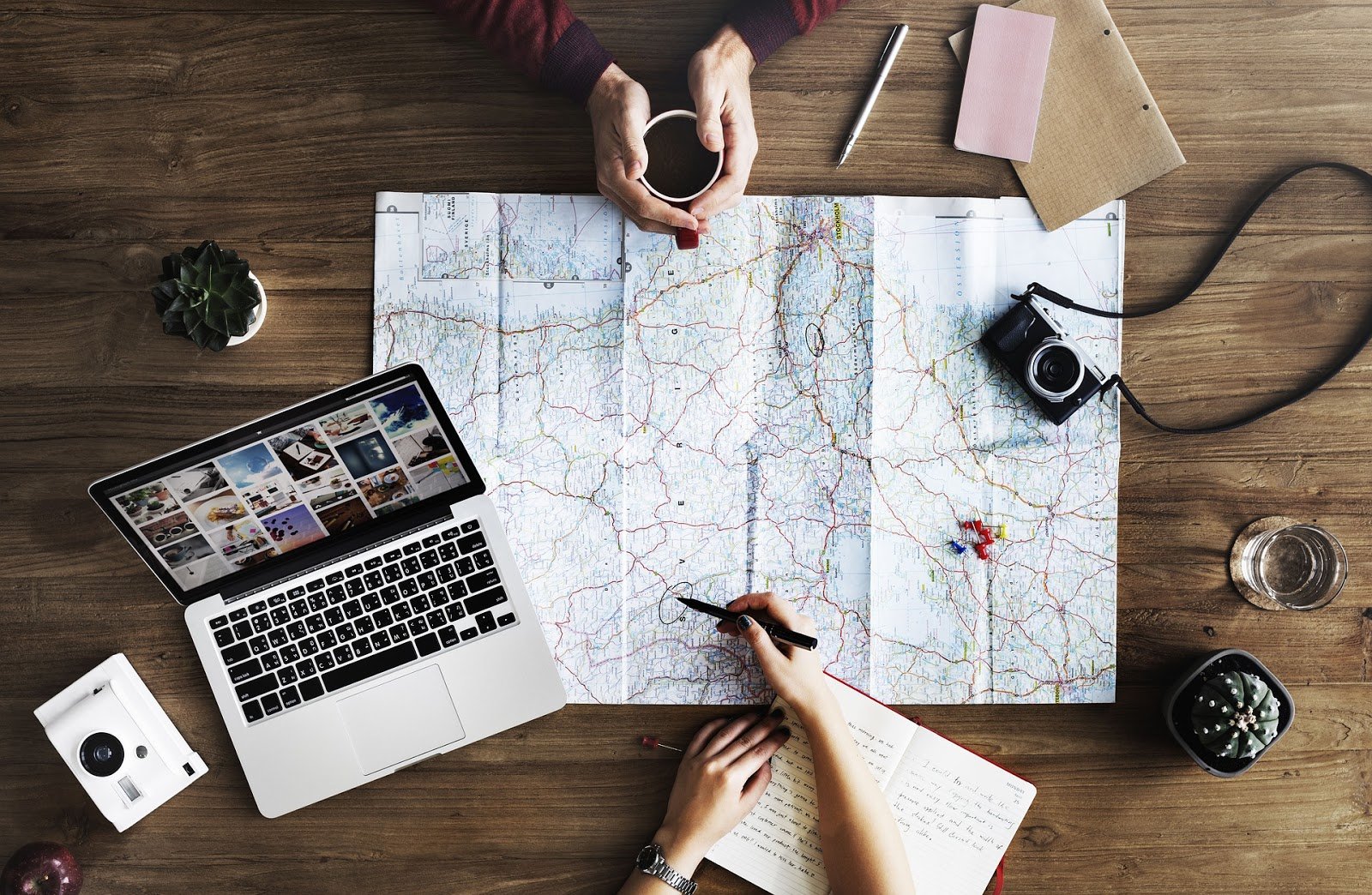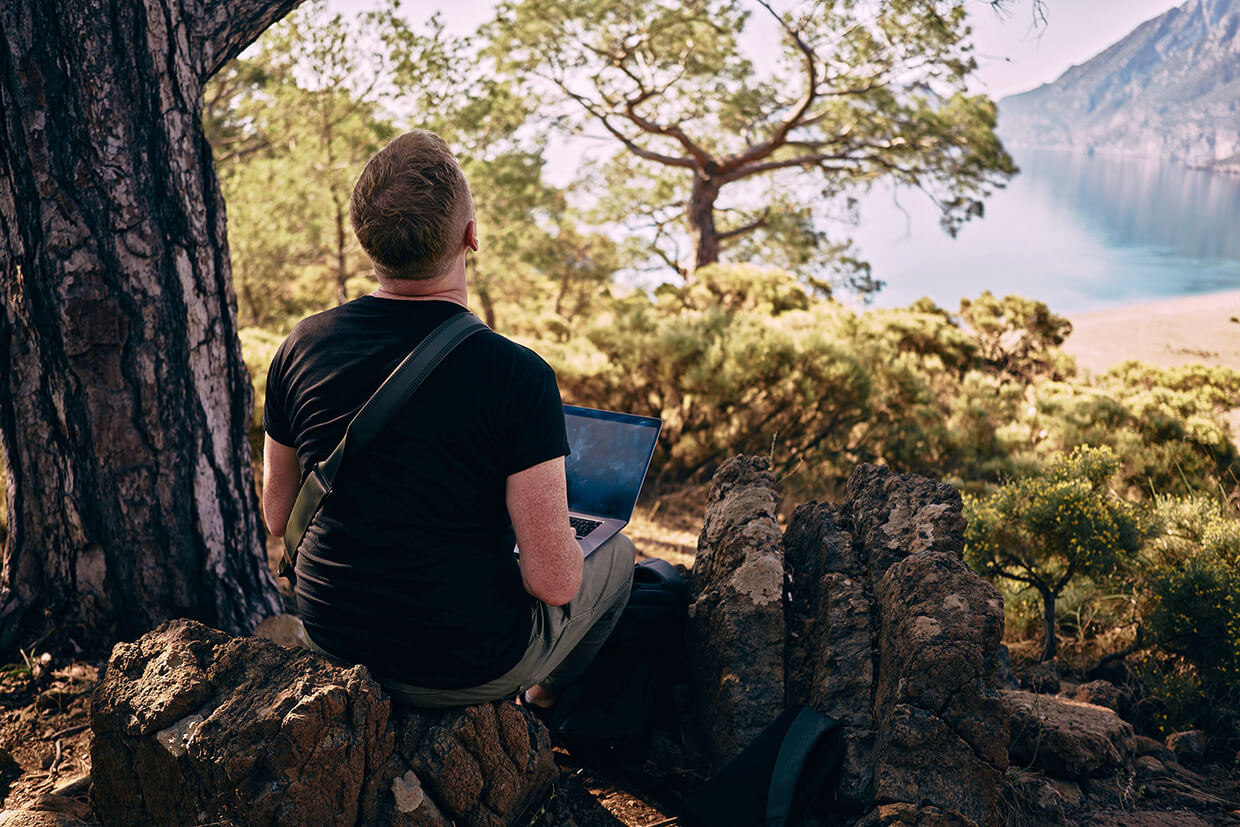One of the most common questions we get from new members in our community is how to be a digital nomad. People see pictures on social media of remote workers sitting on a white sand beach, laptop in hand, making an income and immediately wonder how they can do that too. So, we created a rough guideline to help you find ways to be location independent.
Remote work isn’t as simple as sitting by the pool with a computer on your lap while you work on your tan. It requires hard work to get the right income stream going, and even more dedication to keep it going. It’s easy to skip out on work to go explore instead, so you’ll need to be focused and disciplined to hit your deadlines and stay on track.
Since you may be living in remote areas or countries without a strong infrastructure, you’ll also need to get creative when it comes to the things you need to work. While the reality of remote work can be less glamorous than some of those pictures, the lifestyle is extremely rewarding, even when you do have to track down a dark, dingy café that’s the only place on the island with Internet.
The thing with the digital nomad lifestyle is that there isn’t exactly one blueprint for everyone to follow. Everyone has a slightly different set of skills and varying degrees of professional or career experience so some of you might be able to skip a few steps, while some may need to do a little extra legwork at the beginning.
So while there isn’t one specific path to take, we’ve written this guide with a focus on beginners or people just starting to get interested in the location independent movement.
 What Exactly Is A Digital Nomad?
What Exactly Is A Digital Nomad?
Let’s start by defining what being a digital nomad really means. The term digital nomad is used as a descriptor for many different types of location independent workers from people who have passive income streams to those who work in the gig economy as they move about. You can learn more about the location independent movement here and get an in-depth look at how modern nomads came to be.
The characteristic that all digital nomads have in common is that they usually spend several months abroad each year, are constantly on the move, and earn an income while working online. A digital nomad can easily make an income of $12,000 per year and live a nice, cushy lifestyle in countries like Thailand or Bali in South East Asia. Take that same digital nomad to London, Paris, or Sydney, and that’s not going to work out so well. Location independence means nomads have true freedom thanks to healthy incomes that allow them to run their business from any city on the planet, even from the most expensive ones.
Whatever income level you can muster from remote work, the goal here is to become a digital nomad so you can have the freedom to work and travel across the globe. The Location Indie community offers a plethora of resources and tips from fellow nomads, that can help guide you through the process of building your location independent life and give you tips on how to achieve higher levels of location independence.
First, let’s break down the steps to becoming a digital nomad.
How To Be A Digital Nomad: 9 Steps
Again, there isn’t one specific path to becoming a digital nomad, so the following steps are designed as loose guidelines to help you along the way. You may find that you can skip a few steps or have to start over a few times, but with a little patience and dedication, you can make it happen!
1. Start to Reduce Location Ties and Expenses
The first step on the road to digital nomadism is to start recognizing which things in your life are tying you to one specific location. Long-term leases on apartments or vehicles are often the first things that need to be addressed. You’ll also want to start eliminating expenses like gym memberships and subscription services to free up your income for the things you really need when you’re on the road. Being a digital nomad usually means travelling light so you’ll want to get rid of junk and material things that don’t serve an important purpose in your life.
Now is also the time to pay down or set up payment plans for any debts you may have. Credit card debt should be eliminated as soon as possible because of the high interest rates. If you have student loan debt, you can set up a payment plan or open a special account for your payments so you don’t have to stress if you start digging into savings when you’re travelling. If you have a car, think about selling it. Remember, you won’t be using it in the long term, and you’ll also save more money in the short term by not having to pay for gas, maintenance, registration or insurance.
2. Join A Digital Nomad Community
At Location Indie, our digital nomad community is a great resource for getting started as a digital nomad or taking your online business to new heights. Forums and Facebook groups make it easy to contact groups of nomads or specific ones that you may admire to get advice or feedback. You get access to like-minded individuals who are ready to kick ass and take the world by storm. Our community is here to congratulate you when you make progress and to pick you up if you encounter any setbacks along the way.
Joining Location Indie means you’ll have a built-in support group and wealth of knowledge as you navigate the waters of digital nomadism. You can learn new skills from community members or get tips for working online or selecting a new home base.
3. Identify Your Skills
The first thing you need to do is figure out what skills you possess that you can monetize online. You’ll obviously need to be able to type and use a computer as well as the Internet. The good news is that in today’s day and age, that’s a skill most people already have. You can increase the chances of landing higher-paying remote work by building on knowledge and skills from things you’ve studied or worked on in the past.
Common remote work skills include things like writing, marketing, and computer design or engineering. If you’re a developer, you’ll want to look for jobs building out the front or back end of websites. Teaching English online is another great option for native English speakers and companies like VIPKID make it easier than ever to find clients and become a digital nomad. With enough hours and repeat clients, you can even turn teaching English into a full-time job.
Most digital nomads start off by finding remote work jobs or freelance gigs that allow them to start earning a small income. Once you secure your first source of income, you’ll need to decide whether you will develop that income stream into a larger business or if you will simply find several similar jobs to cobble together to make more money. Again, since there is no specific path to digital nomadism, your situation will vary depending on your skills, knowledge, and also on how willing you are to put yourself out there, take risks, and even maybe fail.
4. Become A Freelancer
Once you’ve figured out what skills you have that will enable you to work remotely, you need to find a job. Arguably the easiest way to do this is to scour remote specific job sites. Luckily, there are now tons of sites online like We Work Remotely and RemoteOk that post only jobs that are remote or location independent. Check out UpWork, formerly known as ODesk, to find freelance gigs for everything from virtual assistants and photographers to accountants and consultants.
These sites allow you to search by industry or skill and, while the most common jobs are often technology-focused, like programming and design, you can also find loads of customer service and support jobs. Writing, editing and transcribing positions are also ideal for people who may not have solid technical skills, but are great communicators.
5. Alternatively, Start By Working or Studying Abroad
If you feel overwhelmed navigating the remote work industry, you can start by finding a location-based job or enroll at a university abroad. This path offers more structure and a safety net in case you decide digital nomadism isn’t right for you. The risk of failure with this path is much lower than becoming a freelancer, but it also means that your road to becoming a digital nomad can take longer. If you choose this method, you’ll need to secure a visa or resident permit. Countries like Canada and Australia offer working holiday visas so you can try out Vancouver or Perth while getting used to living abroad.
You can also try convincing your boss to let you take your current job on the road. To be successful with this approach, you’ll need to do some advance preparation: draft a proposal that addresses all of the important aspects of your job and how you’ll transition them to a remote position without losing momentum. Make sure to outline any areas of concern and take a look at remote management tools like Slack that can make communicating with your colleagues easier. These days, many office jobs can be performed remotely with the right planning, communication, and trust between employees and managers.
6. Build Your Business
Once you’ve been a freelancer for a bit, you can start building out your business. If you do a good job, it’ll be easy to get referrals for new clients and your income streams will grow. You can also consider creating your own website and business cards to market your business and increase your reach and reputation. Remember to keep in mind that you may be working from different parts of the globe, so you’ll want to make sure you schedule work and gigs in the right time zones.
If you are a writer or have expertise on social media, you can build a marketing business that helps business and blogs get larger audiences and more customers. Copywriter jobs are prevalent online and can be a great place to start as you create content for blog posts. Once you develop your skillset, you can turn your skills into a full-service marketing business by creating content, promoting it online through social media channels and driving advertising revenue.
If you already have a freelance business or a remote gig that generates passive income, you can skip those first few steps and just take your work on the road. Alternatively, if you have some cash saved up, you can buy an established online business and get a jump-start. Websites like Flippa make it easy to find online businesses that are for sale and how much revenue they generate. Successful digital nomads are a diverse group consisting of both people who own their own companies and others who seek out potential clients online or work random jobs on the road as they move around.
7. Decide On Your First Destination
Now that you have an income stream set up, it’s time to escape the rat race and set out toward your first destination. From America and Europe to Asia, Africa and Latin America, the possibilities are endless, and deciding on one can be overwhelming. You’ll need to be honest with yourself about the things you need from a location to be happy. If you’re realistic about your income and needs, you’ll find a great place to live. Remember that since you are a digital nomad, you can always change your mind if you don’t like where you’ve landed, or just need a change of scenery.
The first thing you can do to narrow down your list of destinations is to figure out the cost of living in each place. You’ll need to be able to afford everything from rent to food and entertainment so you want to be realistic when it comes to your income relative to the cost of living in possible destinations. Low cost locations mean you can live larger than in higher cost areas, so you also want to keep in mind what activities and adventures you want to partake in as a digital nomad.
You can also head out to digital nomad hubs like Chiang Mai, if you want to be surrounded by like-minded individuals. NomadList is a great resource to identify trending destinations and offers scores based on Internet speed, fun, safety and cost to help you identify where you want to go. You can go more in depth by searching for specific climates, activities, or health markers to help you make your decision.
8. Figure Out How You Want to Live
Once you find a destination, you’ll need to secure housing or at the very least, figure out what kind of accommodations you want. If you’re a social butterfly and worried about setting out and being lonely, you can start off by living in a hostel or co-op where you can easily make new friends. Maybe you prefer having solitude or a quiet place to retreat to. In that case, Airbnb is a great option since you can rent entire apartments for one month or a set period of time and feel like you have your own place.
If you want to have the benefits of added services, hotels and homestays are a great way to go. Hotels may offer laundry and meal service so you can focus on a difficult project or just ease into your new surroundings. You will also have an easy time finding locals to guide you with tips and tricks on your new home. Whatever you decide to do, remember that you now have true freedom so you can mix it up and change your accommodations whenever you need a change.
9. Create A Plan and Stick to It
As a digital nomad, it is especially important to set goals and plans and follow through with them. For the nomadic lifestyle to work, you need to be clear on what you want, where you want to go, how long you may want to stay and what you need to do to make it happen.
When asked for one piece of advice she would give to new nomads, Location Indie member Rachel Story of GratefulGypsies.com said, “Get organized and have a to-do list! Make a plan! As repulsive as a ‘routine’ may seem, it’s essential for getting sh*t done. The good part is that you can choose your own routine. Want to go for a run mid-morning, no worries! Take a long lunch to catch up with a friend? Do it! You’re still ticking things off your list!”
Having backup plans or alternative passive income streams is also a good idea in case you fail at one path and need a safety net while you reset your plans.
Keep in mind that plans shouldn’t only revolve around your income as a remote worker. You also want to address everyday aspects of healthy living such as healthcare, insurance and local laws and regulations. Since you’ll be living in foreign countries, you’ll need to do some research to make sure you understand any new rules and ensure you have the right support if you get sick or injured while exploring.
Final Thoughts
If you really want to be a digital nomad or become location independent, the first thing you need to do is start working toward that goal. You can get started much faster than you think. With hard work and a little luck, you can get started in just a few weeks and have a full-fledged business in one or two years.
With Location Indie’s digital nomad community and online remote work job sites, you have all the resources you need to get started and start adventuring. You have so little to lose and so much to gain, so get out there and start chasing your dreams.















Recent Comments